Counting Teaching Resources
Teach counting skills this school year with printable worksheets, educational games, digital activities and more elementary school resources designed to help students when they are learning to count.
This extensive collection of curriculum-aligned teaching resources includes Base 10 flashcards, subitizing worksheets and more to save elementary teachers time on lesson planning.
Created by expert teachers, each resource in this math collection has been carefully reviewed and curated by our team. That means it's ready to use in the classroom! You'll even find editable resources, plus differentiated options.
New to teaching counting, or just looking for fresh ways to engage your students? Read on for a primer from our teaching team!
What Is Counting?
It may seem obvious, but let's start at the beginning.
The basic counting process involves a one-to-one correspondence between the items in the set and the counting numbers. It's a fundamental mathematical concept taught in the early years that helps our students develop number sense and mathematical skills.
In the primary grades of elementary, students typically learn to:
- Recite the numbers in sequence
- Count objects by pointing to them and saying the corresponding number
- Recognize and write numerals
- Count forward and backward
- Skip count by twos, fives and tens
- Use counting strategies to solve simple addition and subtraction problems
Counting Vocabulary Terms
Let's dive into some common math vocabulary terms related to counting that students encounter in elementary school.
Numerals
Numerals is another word for symbols representing numbers, such as 1, 2 and 3.
Digits
Digits are the individual symbols that are used to make up numerals. For example, let's look at the numeral 12. The digits 1 and 2 make up the numeral 12.
Skip Counting
One of the early skills students learn in counting is the process of skip counting, in which they literally skip over numbers. A precursor to traditional addition, skip counting involves counting by a specific number sequence, such as 2, 4, 6, 8, etc.
For example, when skip counting by 2s, a student would start at 2, counting out 4, 6, 8, 10 and so on.
Counting On
Counting on is a simple strategy for performing addition. Using this strategy, students start with a smaller number and count up by the number being added to find a sum.
For example, if a student faces the addition problem 3 + 4, they would start with the number 3 and count on 4 more: 4, 5, 6, 7. In this case, the answer is 7.
Counting Back
The opposite of counting on is counting back. This strategy for solving subtraction problems involves starting with a larger number and counting down by the number being subtracted to find a difference.
For example, a student who wants to solve the subtraction problem 5 - 3 could count backward from the larger number to find the solution. In this case, the larger number is 5. The student would start with 5, counting back 3 — 4, 3, 2. The answer is 2.
Tally Marks
Tally marks are a great tool for teaching early counting skills. When teaching counting with tally marks, you ask your students to draw a certain number of tally marks to represent a given quantity.
For example, if a student is going to count to four using tally marks, they would draw a single vertical line and then draw three more lines next to it.
Tally marks are typically drawn in groups of five, so if a student were asked to count to five using tally marks, they would draw a diagonal line crossing through the four vertical lines to represent all five.
Understanding how to create sets of five tally marks can help students count to larger numbers easily. For example, if a student is asked to count to 15, they would create three sets of five tally marks.
Grouping
The term grouping has several definitions, depending on how it's being used. But when it comes to counting, grouping refers to a method of organizing objects into groups of equal size to facilitate counting.
Sets of tally marks are a perfect example of grouping — they're a visual representation of grouping numbers into sets of five.
How to Teach Counting
Are you looking for some fun ways to teach counting in your classroom? The more hands-on and active, the better!
In addition to the worksheets, games and other activities in this collection, try some of these fun ideas from our teacher team!
- Use Snacktivities — Math manipulatives help young kinesthetic learners understand counting by making the concepts more concrete, and using snacks adds a real-world element to the lesson! Challenge students to string snacks like cereal loops for practice with grouping or simply to count out exact numbers of gummy bears. Just make sure no one samples the manipulatives!
- Get Arty — Incorporating art into counting activities adds an element of fun. For example, ask kids to draw a certain number of circles, squares or other shapes and then count them out loud. This also helps students work fine muscles and develops their understanding of basic shapes.
- Play Store — Even before students learn about currency, kids enjoy the role-play of "shopping" like adults. Use this to your advantage by setting up a classroom "store" and asking children to count out the correct amount of play money to purchase items.
- Get Active — Encourage movement and help students get their wiggles out while learning. Ask children to count out loud while jumping or hopping, or play a game of Simon Says that involves specific numbers of a specific movement.
- Free Plan
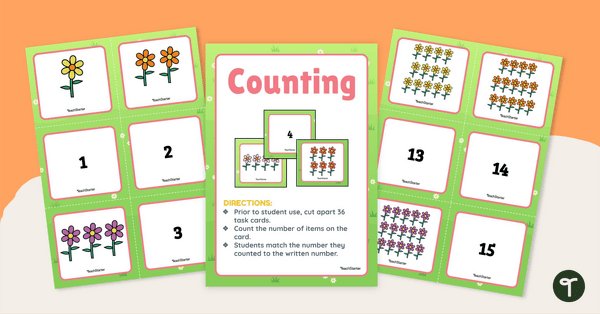
Kindergarten Counting 1-20 Matching Game
Use this matching game in your primary classroom to teach students to count quantities and match them to numbers (1-20).
- Free Plan
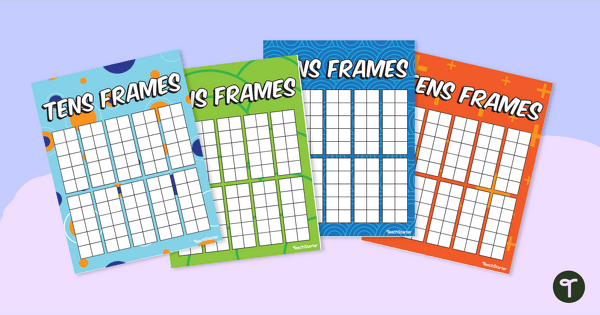
Numbers to 100 - Printable Tens Frames
Print a colorful set of tens frames to enhance your small group math lessons.
- Plus Plan
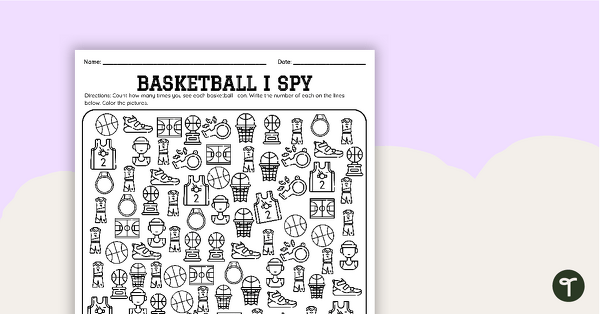
Basketball I Spy Worksheet
Have a bit of counting and coloring fun with a basketball worksheet for Kindergarten.
- Free Plan
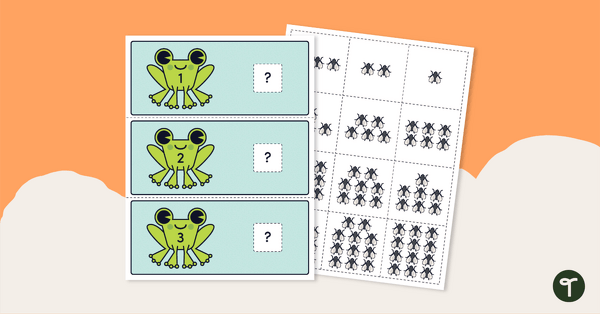
Frog and Flies Match-Up Activity (Counting to 12)
Practice counting numbers 1 to 12 with this fun frog and fly match-up activity.
- Free Plan
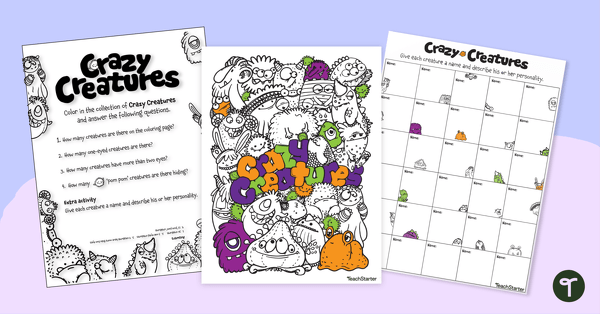
Crazy Creatures – Counting Worksheet
Bring a bit of (not-so) spooky counting into kindergarten with a crazy creatures Halloween activity.
- Plus Plan
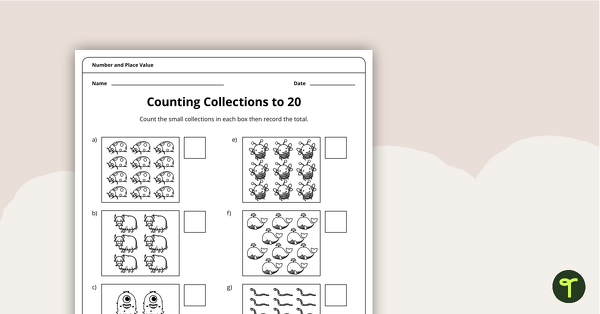
Counting Collections to 20 Worksheet
A worksheet for students to use when counting small collections.
- Free Plan
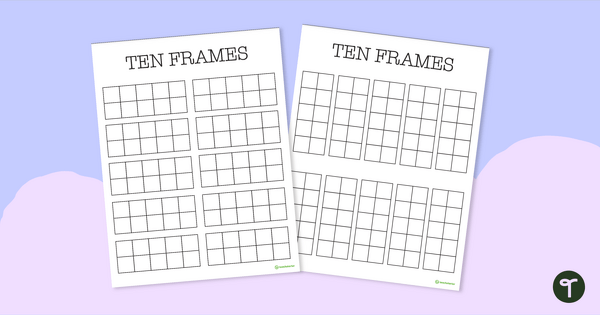
Ten Frame - Printable Templates
Print a set of 10 blank ten frames to use in various math lessons.
- Plus Plan
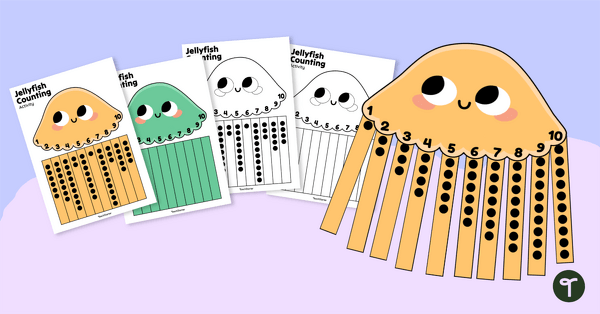
Jellyfish Count to 10 Matchup Activity
Use this match-up activity to help reinforce your students’ knowledge of one-to-one correspondence to 10.
- Plus Plan
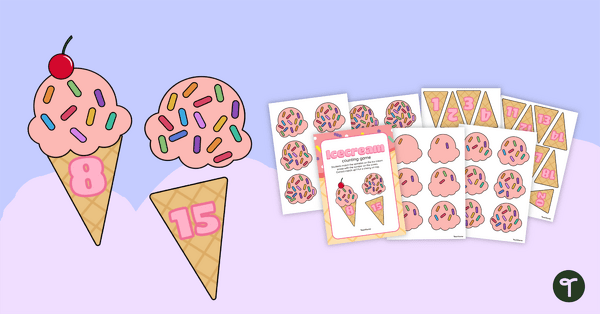
Ice Cream Counting Game
Help students practice their knowledge of counting numbers 1-20 with this fun ice cream matching game.
- Plus Plan
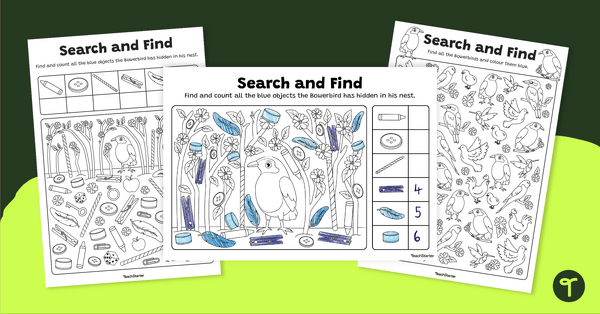
Search and Find Bowerbird Worksheets
Explore images of bowerbirds and search, find and count objects that bowerbirds collect or bowerbirds themselves.
- Free Plan
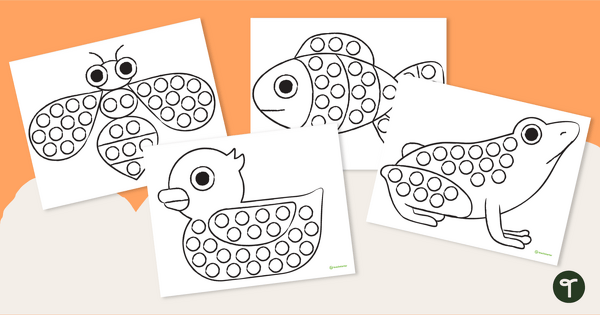
Roll, Count, and Cover - Dot Day Activities
Build fine motor skills and counting skills with a set of printable Roll, Count, and Color Dot Day Activities.
- Plus Plan
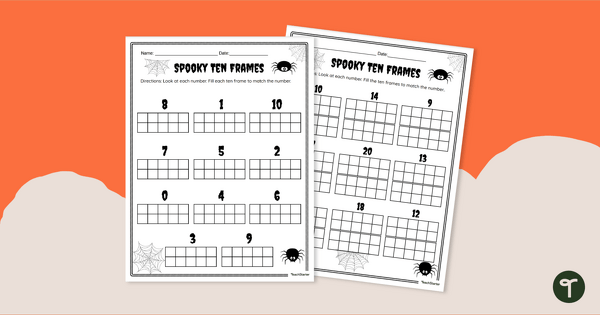
Halloween Math Worksheets - Spooky Ten Frames
Model numbers to twenty using ten frames with a spooky Halloween math worksheet for kindergarten.
- Free Plan
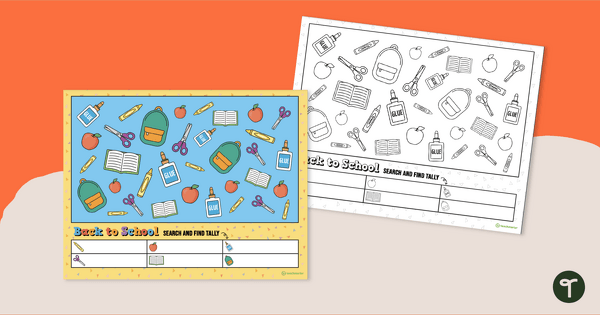
Search and Find – Back to School
Start the school year with a fun Back to School math activity for first graders.
- Plus Plan
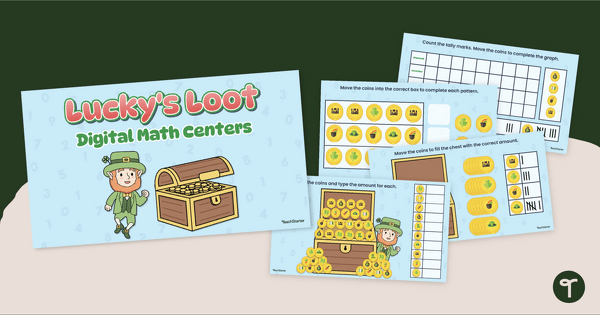
Lucky's Loot - Digital St. Patrick's Day Math Activity
Save time lesson planning with a St. Patrick's Day Digital Math Activity that reviews multiple math concepts at once!
- Plus Plan
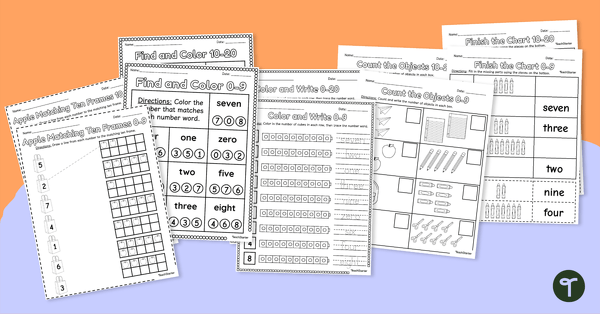
Kindergarten Number Worksheets
Use this set of worksheets when students are practicing connecting numbers to words and quantities.
- Plus Plan
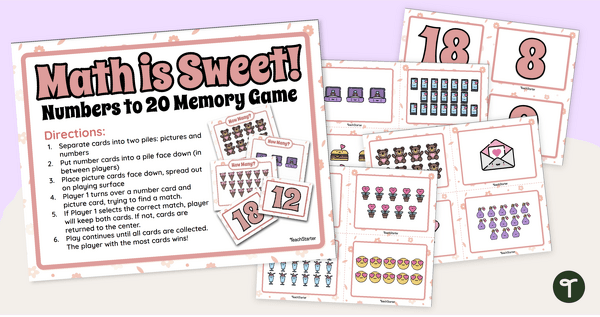
Valentine's Day Math - Counting to 20 Task Cards
Practice numbers 1 to 20 with a set of printable Valentine’s Day task cards created by teachers for teachers.
- Plus Plan
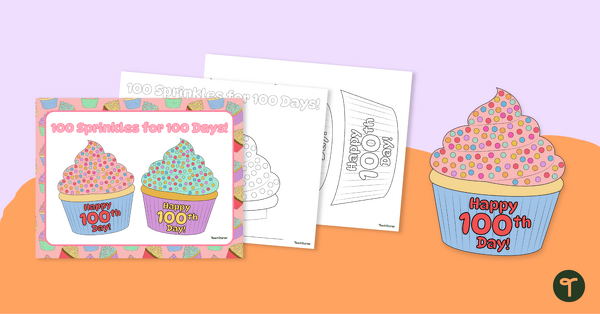
100 Sprinkles for 100 Days Cupcake Craft
Sprinkle in some sweet counting practice on the 100th Day of School with a printable 100th-day celebration craft activity.
- Plus Plan
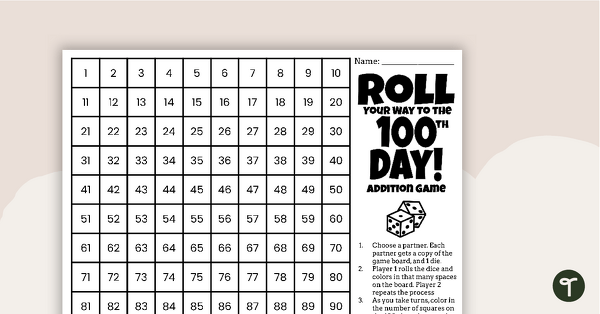
100th Day of School Dice Games - Roll to 100 Challenge
Roll your way through the 100th Day with dice games for kids.
- Plus Plan
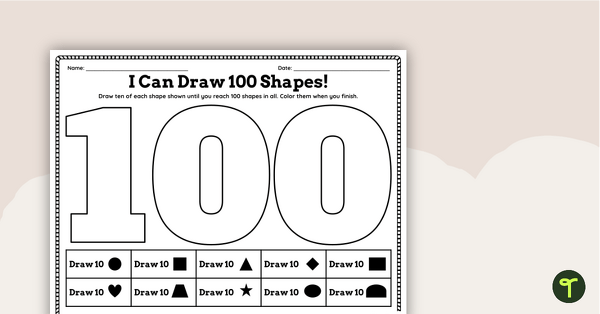
I Can Draw 100 Shapes Worksheet — 100th Day Activity
Celebrate the 100th Day of School in the classroom with printable 100th Day of School Math worksheets.
- Plus Plan
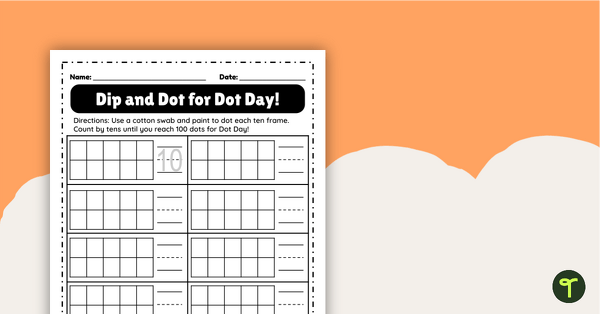
Counting to 100 — Dot Day Worksheet
Celebrate International Dot Day with this fun, hands-on way to learn how to count to 100 using ten frames.
- Plus Plan
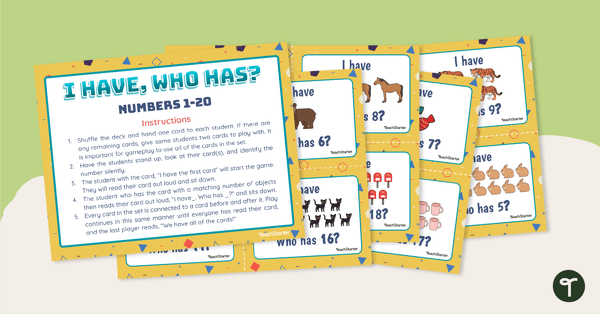
I Have Who Has - Numbers 1-20
Practice identifying numbers 1–20 with this set of “I Have, Who Has” game cards.
- Plus Plan
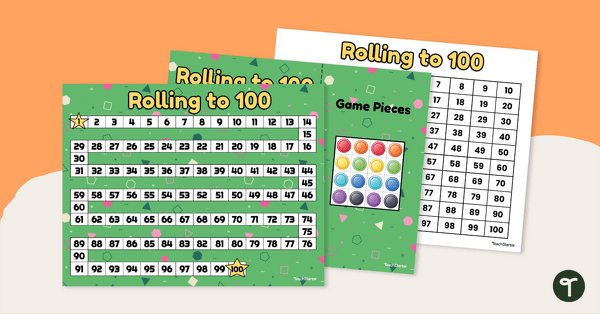
Rolling to 100 Board Game
Practice counting to 100 by 1's with this interactive hundreds chart board game for multiple players.
- Plus Plan
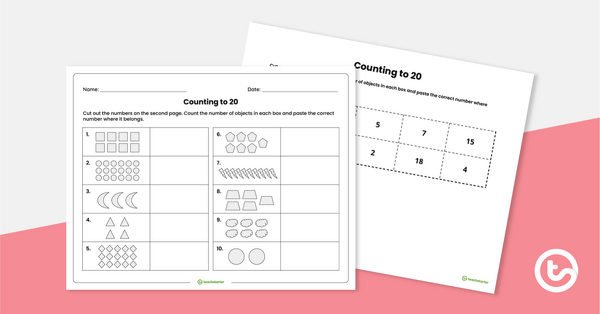
Counting to 20 - Cut and Paste Worksheet
Count objects within 20 and match the total to its written number on this 2-page cut-and-paste worksheet.
- Free Plan
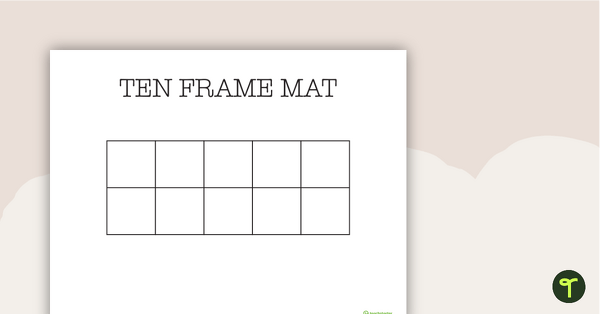
Ten Frame Mats (Single and Double)
A ten frame mat and a double ten frame mat to use in a variety of ways.
- Plus Plan
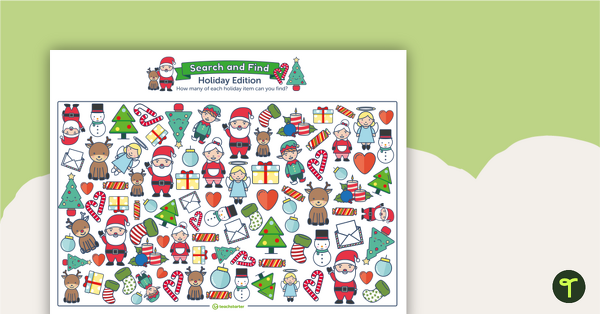
Christmas Counting Worksheet - Search and Find
Practice counting with your students to get them in the mood for the holidays with this fun Christmas search, count, and find activity.
- Free Plan
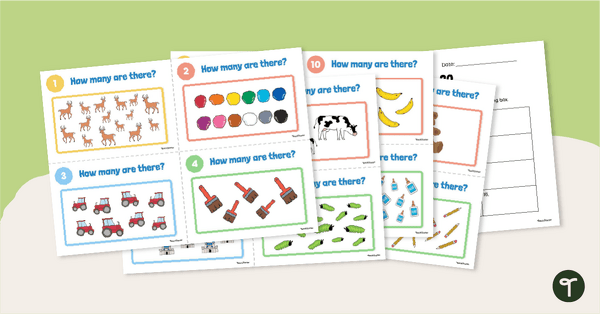
How Many Are There? Counting to 20 Task Cards
Practice counting objects up to 20 with this set of 16 task cards.
- Plus Plan
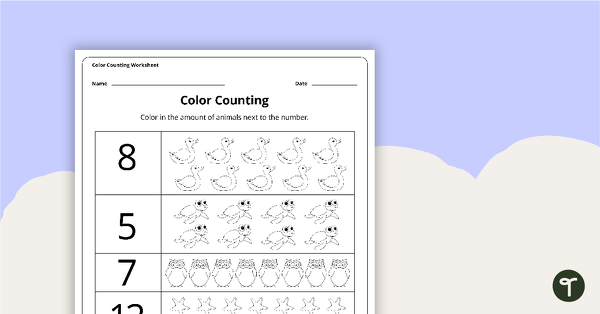
Counting to 20 - Worksheet
A worksheet to practice one-to-one correspondence.
- Plus Plan
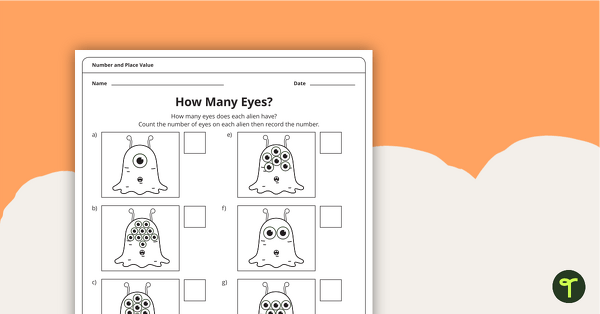
How Many Eyes? - Alien Counting Worksheet
A worksheet to practice one-to-one correspondence.
- Plus Plan
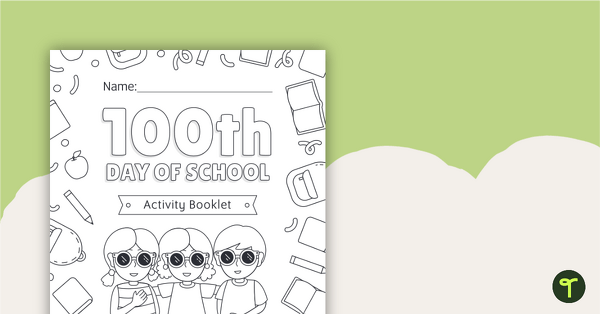
100 Days of School Activity Book
A fun booklet of activities for students to complete on their 100th day of school.
- Free Plan
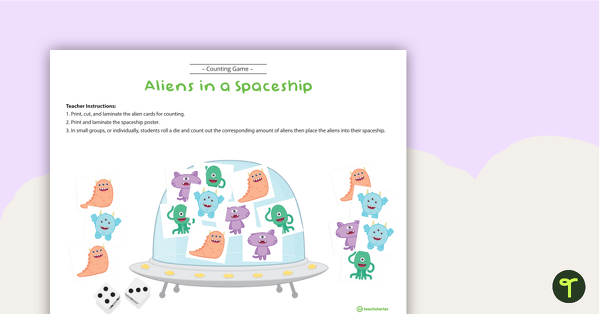
Aliens in a Spaceship Counting & Subitizing Game
Download a fun, hands-on game for teaching kids to count and use one-to-one correspondence or to subitize.
- Free Plan
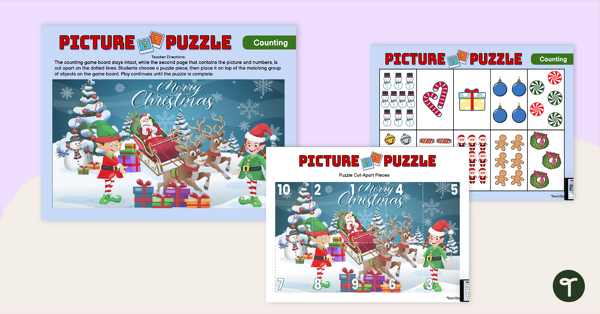
Christmas Math Puzzle - Counting to 10
Count groups up to 10 with a printable Christmas math puzzle.
- Plus Plan
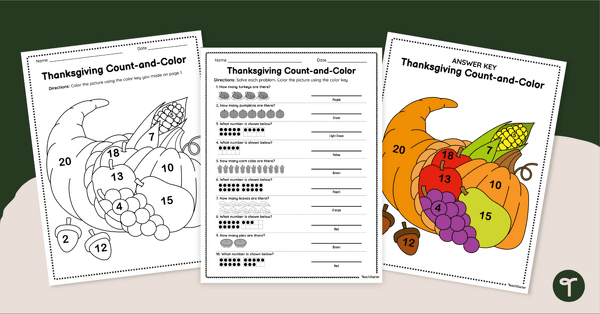
Thanksgiving Color-By-Number for Kindergarten - Counting
Count sets of objects up to ten with a printable Thanksgiving Color by Number Worksheet for Kindergarten.